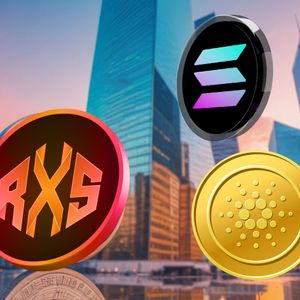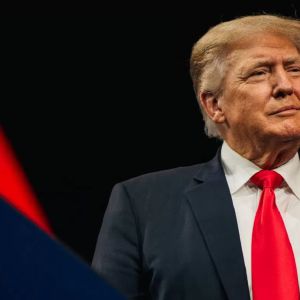Summary Ether ETFs have gained popularity in the US market after their recent launch, with BlackRock's ETHA being one of the most popular. I delve deeper into ETHA and explain why it's not my favorite investment vehicle. I conclude my analysis with a 'Hold' rating for ETHA. Spot Ether ETFs have just hit the US market by storm, not long after the debut of spot Bitcoin ETFs. Here are the options investors now have if they wish to invest in Ether ETFs. Spot ether ETFs (CNBC) As usual, big names like Grayscale, Fidelity, and BlackRock, among others, have participated in this new offering and will be investing substantial amounts of capital into Ether tokens which will form the underlying of their crypto funds. As with spot Bitcoin ETFs, the launch of spot Ether ETFs now provides a hassle-free and secure method for people to invest in the token. Previously, one would require a crypto wallet to hold such tokens. Hardware wallets are often the safest option, but the inconvenience of setting one up causes many investors to settle with online wallets like MetaMask, or even worse, leaving the tokens held in crypto trading exchanges like Crypto.com. It's crucial to remember that the crypto space is far from hack-free, with over $1.7 billion in tokens stolen from hacks alone in 2023. When you buy into Ether ETFs, you essentially leave the security matters to the companies managing the trust, which contains the Ether tokens that form the underlying of the fund. Doing so is likely to be far safer on average, especially for investors who are relatively new to the space and may not know how to secure their tokens with a reliable crypto wallet. However, there are definitely other factors to consider before investing in such instruments. In this article, I go deeper into BlackRock's iShares Ethereum Trust ( ETHA ) - a crowd favourite among Ether ETFs - and explain why I'm not in love with it. Fees are not high, but also aren't the lowest Like most Ether ETFs in this recent debut, ETHA's underlying consists almost fully of Ether tokens, and its price movement correlates closely to that of the token itself. It is the largest Ether ETF, and it is managed by the most reputable fund manager in the world - BlackRock. While most Ether ETFs are similar in their investment objectives, a key differentiating factor among them is their fee structure. ETHA Fees (iShares) As seen from above, ETHA's fees are 0.12% until the fund exceeds $2.5b of the Trust's assets or the 12-month waiver period is over. While this is far more competitive than Grayscale Ethereum Trust's ( ETHE ) hefty fee of 2.50%, Ether ETFs from VanEck ( ETHV ), and Franklin ( EZET ) offer more competitive fee structures which start at 0% during the waiver period and go up to 0.20% and 0.19% respectively. More details can be found below. Franklin Ether ETF Fee Structure (CryptoPotato, Franklin Templeton) VanEck Ether ETF Fee Structure (CryptoPotato, VanEck) All in all, ETHA's fees are not the highest, but certainly not the lowest, and the small differential in fees on a percentage basis can mean a lot in absolute terms for large amounts of capital invested over long horizons. Ether as an investment vs. Bitcoin While this new launch is largely similar to that of the most recent spot Bitcoin ETFs, we must realise that Bitcoin and Ether are two fundamentally different cryptocurrency tokens. While Bitcoin is proposed by many as a potential store of value and hedge against inflation, Ether has a completely different purpose. The Ether token is the main form of cryptocurrency on the Ethereum platform, which is the most popular decentralised blockchain platform in the crypto space. Ethereum facilitates the writing of smart contracts and allows developers to build decentralised applications, also known as dApps, on the platform itself - something you cannot do with Bitcoin, As such, many may see Ethereum as a more flexible and scalable investment option. No fixed Ether supply That being said, a major drawback is that Ether tokens have no supply cap, so the total amount of circulating token supply can vary based on the burning or issuing of tokens. As a result, the price of Ether may face greater volatility in the future, and there is less certainty as to whether the current price is a good one to pay for the Ether token. Bitcoin does not face this issue as it has a fixed supply cap, which makes it a candidate for a suitable inflation hedge (though I do have my doubts, do check out my article on IBIT ETF to know more!). However, the varying supply of Ether makes its valuation even more ambiguous than Bitcoin's, and I'm not exactly a fan of that. Competition in the space Another concern is Ethereum's growing number of competitors - many decentralised blockchain platforms are in the works as we speak, with aims to triumph Ethereum's transaction speed and costs. A very noteworthy player in the space is Solana, which has shown to be more efficient and affordable as compared to Ethereum. In fact, Solana processes 2600 transactions per second, compared to Ethereum's 15, and the former's gas fees are also significantly lower. While Ethereum still remains the most popular decentralised platform due to its impressive adaptability and reputation, we need to acknowledge the possibility of a new player taking over in the future. If Ethereum fails to overcome its competition, the price of Ether may be significantly impacted. No staking for Ether ETFs For security and regulatory purposes, issuers will not be staking their funds' underlying Ether tokens. Staking involves locking up your tokens as collateral to validate transactions on the Ethereum platform, and you're paid in freshly minted Ether tokens for facilitating the process. Investors can quite easily do so if they own Ether tokens, and may assume that investing in Ether ETFs would generate similar passive income since fund managers can simply stake the underlying Ether tokens. However, the SEC does not allow this due to regulatory concerns. As such, investors would face the opportunity cost of a potential passive income stream generated through staking if they choose to invest in Ether ETFs as opposed to owning Ether tokens directly. Doing so with ETHA is no exception - the same amount invested directly in Ether tokens could potentially yield a better return due to the staking interest earned (in tokens). Whether this regulation will be lifted in the future so that Ether ETFs can pay dividends that match staking rewards is still not certain. However, as it stands, ETHA may not be the most attractive way to gain exposure to Ether. Why you may consider ETHA In my opinion, ETHA provides investors with a reliable vehicle to invest in Ether tokens securely. Investors are able to essentially bypass the lengthy process of setting up a wallet to invest directly in Ether tokens. In addition, the rapid development of blockchain technology and decentralised platforms is a good indicator that the crypto space is evolving to offer more utility to its users through platforms like Ethereum. As such, an investment in ETHA is a potentially attractive and decently secure method of gaining exposure to the growth of Ethereum and the price appreciation of the Ether token. Potential concerns with such an investment Yet, it's important for us to still understand the risks involved with an investment in ETHA, especially those specific to Ether tokens - varying token supply and increasing competition to name a few. The lack of passive income generated through the staking of Ether is also a key consideration. Finally, it's imperative to note that while ETHA is the largest ether ETF, its fees are far from the most competitive, and the effects of these fee differentials cannot be understated. Investment decision In conclusion, I like ETHA, but I don't love it. The fees definitely make other Ether ETFs that bit more attractive. In addition, the future path of the Ethereum platform is one with many obstacles, so I'd be wary of the potential investment risk with regard to the Ether token. I rate ETHA a 'Hold' for these reasons.











